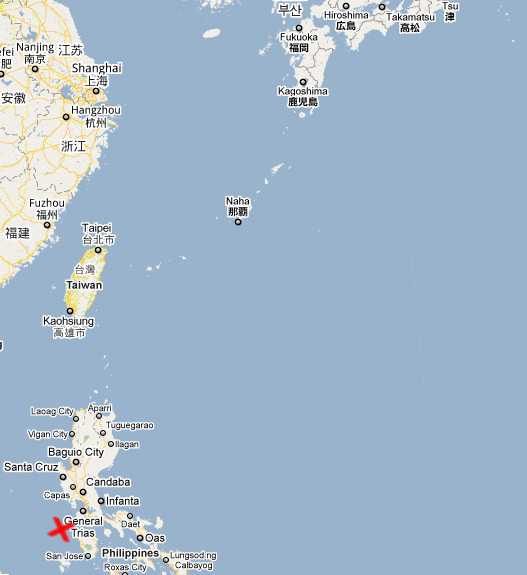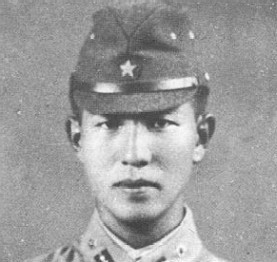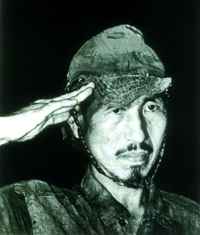36 years ago, on March 9 1974, Lieutenant Hiroo Onoda, from the Japanese Imperial Army Intelligence, surrendered after almost 30 years of hiding on a Philippine island.
In December 1944, Onoda, who was an elite commando, was sent on the Philippine island of Lubang, with a mission to gather information and to conduct guerrilla warfare. However, after several months, the island was taken by the American troops and Onoda withdraw to the jungle hills, with other three soldiers: Private Yuichi Akatsu (who surrendered in 1950), Corporal Shoichi Shimada (who died in 1954) and Private Kinshichi Kozuka (who died in 1972).

He was officially declared dead in December 1959, but multiple incidents indicated otherwise and Onoda became famous, because the local residents and the Philippine police often told stories about encounters with him.
Despite the efforts made to convince him to surrender (by leaflets, newspapers and even letters and messages spoken on loudspeakers by friends and relatives), Hiroo Onoda refused to believe that the war was over. When he was briefed for the mission, his commander told him:
You are absolutely forbidden to die by your own hand. It may take three years, it may take five, but whatever happens, we’ll come back for you. Until then, so long as you have one soldier, you are to continue to lead him. You may have to live on coconuts. If that’s the case, live on coconuts! Under no circumstances are you to give up your life voluntarily.
The residents were frightened, because Onoda and his soldiers were stealing rice, clothing, every few months a cow, and at some point they even set fire on the rice collected by the farmers.
During all this guerrilla, it seems that they killed about 30 local residents, injured around a hundred of them and engaged in shootings with the police several times (one of his men, Kinshichi Kozuka, died during a confrontation with the police, in 1972).
In February 1974, Norio Suzuki, a young Japanese traveler, who knew about these encounters, went in Philippine to search for “Lieutenant Onoda, a panda, and the abominable snowman, in that order”. He managed to find Onoda, they met and became friends. Suzuki explained that the war was long ended and Onoda told him that would agree to surrender only if he received the order from one of his commanders.
I am a soldier and remain true to my duties.
Suzuki returned to Japan and with help from authorities he found Onoda’s commanding officer, Major Yoshimi Taniguchi, who was now a books seller. Taniguchi agreed to go to meet Onoda and deliver the orders to surrender.
Onoda met him on March 9, 1974, dressed in his old uniform, equipped with his sword, his Arisaka rifle still in good condition, his ammunition and several grenades. He listened to the orders and finally accepted that the war was over and surrendered.
When he surrendered, Onoda was 52 years old and was perfectly healthy. He declared that during all this period of time he was “sick in bed” just once! He was always careful and monitored his body temperature constantly. He noticed that after eating meat his temperature raised and that after drinking coconut milk the temperature returned to normal, so he constantly adjusted his diet.
An amazing fact is that he had no cavities, because he brushed his teeth daily with palm tree fibers.
In order to be repatriated, Onoda received a pardon for his acts from the Philippine President Ferdinand Marcos. Returned home, he was welcomed as a hero and he published his memories (No Surrender: My Thirty Year War). However, he never managed to adapt to the modern life in Japan and after only one year in Japan, he moved to Brazil, where he became a cattle farmer and married in 1976.
Hiroo Onoda returned to Japan in 1984, after he read in a newspaper about a student who killed his parents, and he established an educational camp for young people, the Onoda Shizen Juku (Onoda Nature School).
When I was living in Brazil in the 1980s, I read that a 19-year-old Japanese man killed his parents after failing the university entrance exam. I was stunned. Why had he killed his parents instead of moving out? I guess he didn’t have enough confidence. I thought this was a sign that Japanese were getting too weak. I decided to move back to Japan to establish a nature school to give children more power.
In 1996, he returned to Lubang Island, revisiting his hiding place and donating 10,000$ for the local school. He is currently 87 years old and lives in Japan and Brazil.
His words impressed me:
Every minute of every day, for 30 years, I served my country. I have never even wondered if that was good or bad for me as an individual
For more information:



